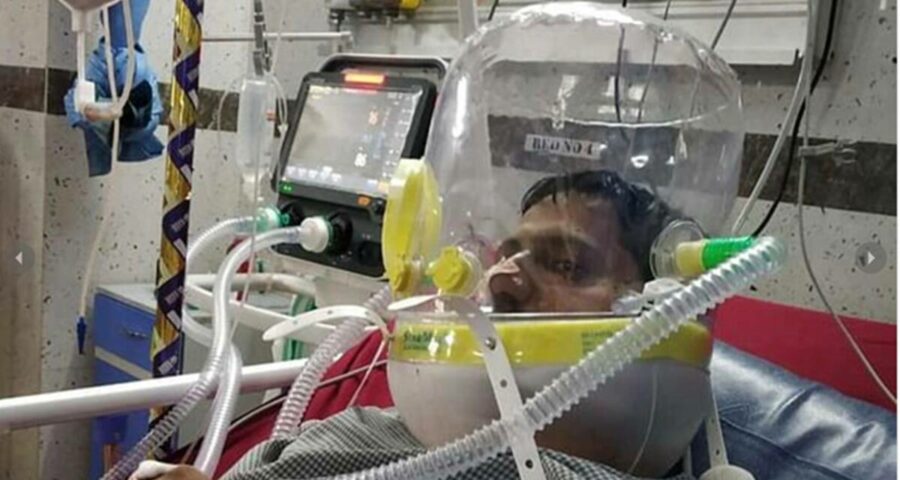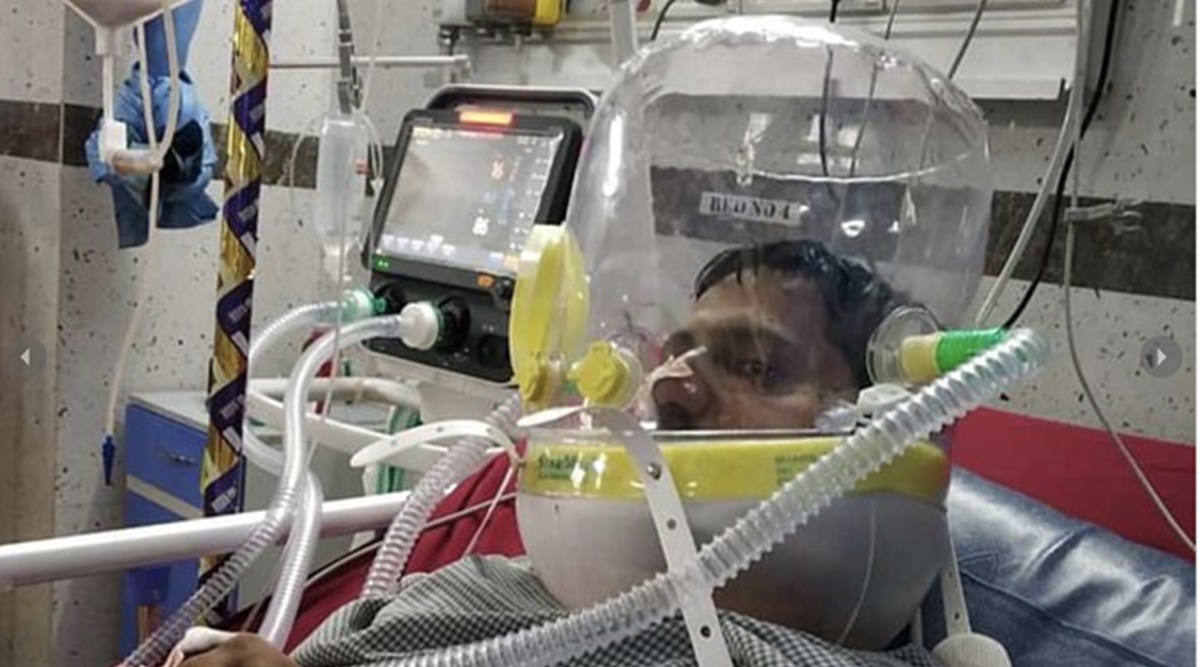As of May 1, 2021, Telangana government statistics reveal that 46 lung transplantation surgeries have taken place in eight months between August 2020 and April 2021, compared to 23 such surgeries in seven years and seven months between 2013 and August 2020.
After Dr. Pathlavath Anil Kumar, a young faculty member at Bengaluru’s Christ University lost his battle against Covid-19 at a Hyderabad hospital on Monday night, his teacher Prof Vinod Pavarala took to Twitter to share his grief: “No teacher should have to mourn the passing of his/her student. I am shattered. All offers to help by OUCourier @KTRTRS and many of his friends came to naught. We heard the family’s cry too late.”
Kumar was just 38. Battling Covid Pneumonia since May 5, when he tested positive for the infection, Kumar was one among the many coronavirus patients with fully damaged lungs and advised to undergo a lung transplant by doctors. After spending over Rs 20 lakh for the treatment at the private hospital, the family started a fundraiser via an online portal. Along with hospital bills and supporting documents, his wife M Kavita wrote: “We have arranged amounts from savings and loans. In the next 30 days, we need Rs 1 crore more for a lung transplant.”
A double lung transplant surgery, usually advised to a patient recovered from coronavirus infection with end-stage lung damage, costs between Rs 35 lakh to Rs 40 lakh. While many hospitals advise or recommend patients to undergo such a surgery, the number of centers with an expert team of doctors and resources are only a handful across the country.
According to the Telangana government’s Jeevandan cadaver transplant programme, there are about 20 patients registered and awaiting a lung transplant as of date. The statistics reveal that the Covid-19 pandemic has resulted in huge demand for lungs for transplant.
As of May 1, 2021, the statistics with the government reveal that 46 lung transplantation surgeries have taken place in eight months between August 2020 and April 2021, compared to 23 such surgeries in seven years and seven months between 2013 and August 2020. While organ donations and harvest for other organs such as kidney, liver, heart, cornea, and pancreas, etc have gone down drastically.
Dr. G Swarnalatha, the in-charge of the Jeevandan, and an additional professor of Nephrology at the Nizam’s Institute of Medical Sciences in Hyderabad, told indianexpress.com that organ donations have come down while the demand for lungs as an organ has gone up recently. “Earlier, lungs were not being utilised during organ donations. Now, even though organ donations have come down in the wake of the pandemic, we are utilising lungs as there is a requirement,” she stated.
Lung transplantation surgeries are complex, pose a lot of risk to the patient, and are expensive. No government hospitals to date have taken up lung transplant surgeries. Apart from the cost involved in transplantation surgery, other factors such as days of ECMO support, airlifting of organs from other places, if required, post-operative management of the patient, etc further escalates the cost. Besides, one of the key challenges in harvesting lungs is that the organ needs to be transplanted into the receiver’s body within four to six hours unlike 12 hours in the case of a kidney.
At the KIMS Institute of Heart and Lung Transplant in Hyderabad, doctors have performed as many as 39 lung transplant surgeries in the last eight months. Of them, 14 were successfully performed on patients who fully recovered from Covid-19. The centre also has the distinction of performing India’s first double lung transplant on a Covid patient last September.
The Covid pandemic has brought about a sharp rise in acute end-stage lung disease. An ECMO (Extracorporeal Membrane Oxygenation) machine, which uses an artificial lung to run the blood through filters, oxygenates it, removes carbon-di-oxide, and returns it into the body, is being used in abundance on critical patients across the country.
Speaking to indianexpress.com, Dr. Sandeep Attawar, the programme director and chair at the Institute, said a double lung transplant surgery is the last option for a Covid recovered person who shows no signs of recovery of the lungs after four to six weeks of being on ECMO. According to him, such a surgery on a person recovering from coronavirus infection makes the operation high-risk. An exhaustive evaluation is not possible and hence it would be difficult to say how the body would react to the transplant. “The recovery post-surgery is a nightmare. It requires a consistent degree of effort, a highly skilled and trained team, a great deal of monitoring, resources, and a lot of persuasion and financial resources from the family’s side,” he said.
A double lung transplant surgery could take between 8 and 16 hours. Explaining why it is complex, Dr. Attawar said a person who has recovered from COVID would need a double lung transplant as both his lungs would have been infected. “The surgery has many levels of complexities. One of them is that the patient’s blood is as thin as water after weeks of being on ECMO. The operation is so exhaustive that there is a lot of blood loss during the procedure.”
“Making sure the surgical level of meticulousness is very high, so that the patient after the operation and during the operation does not bleed, is mandatory and emblematic of the level of skill of the surgeon. These patients can suffer immediate complications during and after the surgery characterised by massive bleeding,” he said. The skill and diligence apart, the surgery also requires the use of transplant medicine, preservative solutions, and disposables, etc, all of which are imported and hence making the procedure expensive.
“While there is not much experience in lung transplantation, Covid-19 and lung transplantation is a new entity though there are broader guidelines. It is very difficult to decide which patient is suitable for a lung transplant surgery,” added Dr. Swarnalata, noting that in certain cases, patients have recovered too while waiting for the organ.
Due to increased demand for lungs, Jeevandan now sends a request across the country through the National Organ and Tissue Transplant Organization (NOTTO) whenever a patient registers for the organ but only the affluent can afford the procedure.
Source: Read Full Article


